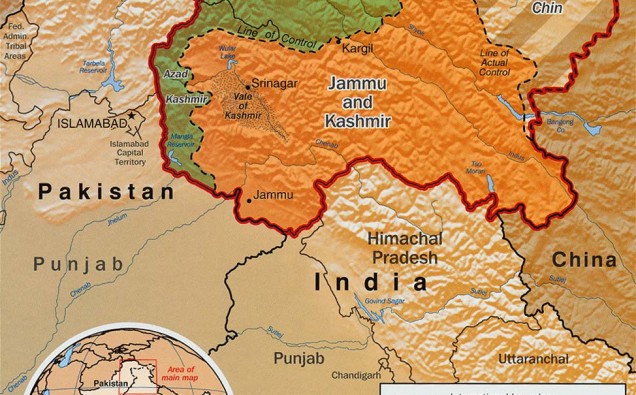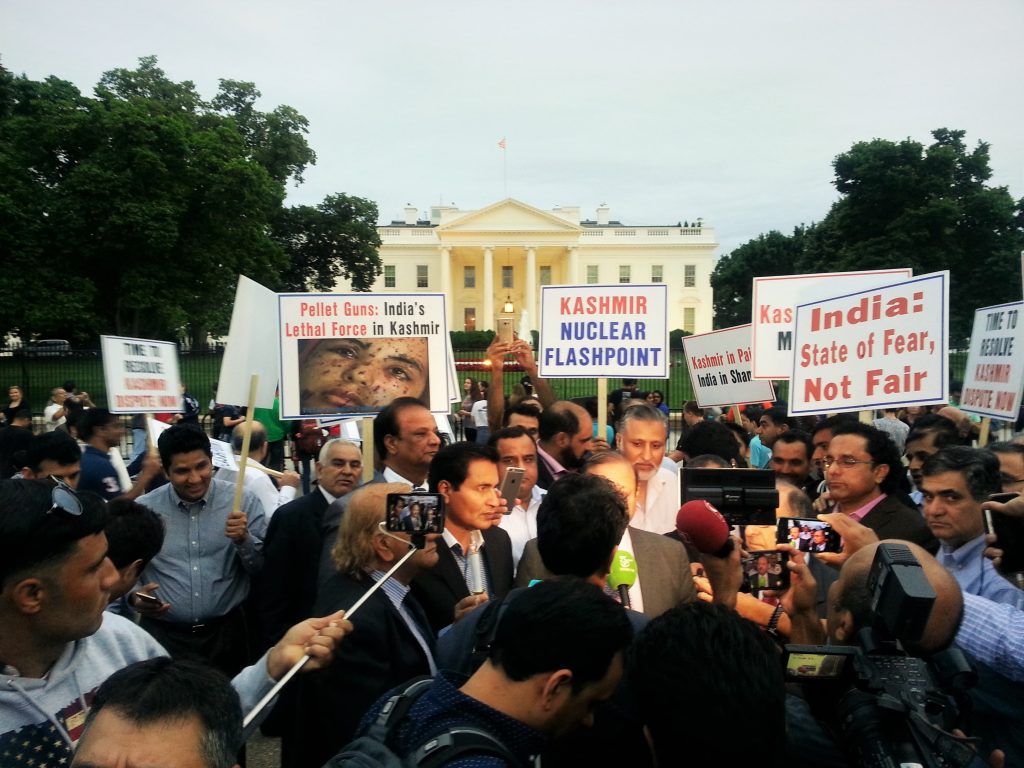
The United States is making it clear that it continues to view Kashmir as disputed territory and that it wants Pakistan-India talks toward resolution of the longstanding dispute.
A series of statements by the U.S. senators and the State Department officials acknowledge that Washington’s policy on Kashmir has not changed, a concern raised by some analysts in the wake of U.S. silence over human rights violations in Indian controlled Kashmir and designation of a Kashmiri militant as global terrorist.
Islamabad criticized Washington’s sidelining of the issue during India’s ultranationalist prime minister Narendra Modi, who is facing international criticism for Indian brutalities in Kashmir as well as a spate of lynchings of Muslims.
Senator John McCain, an influential voice on the Capitol Hill, led a delegation to Islamabad on the heels of Modi’s visit to Washington and assured Islamabad of the pivotal importance it continues to have with regard to stability in Afghanistan.
McCain’s visit also takes place as President Donald Trump’s administration prepares for implementation of a new U.S. policy on Afghanistan 16 years after invasion of the country. American officials have indicated the US might send another four thousand troops to Afghanistan.
They will join more than 8000 American troops already in the country facing Taliban insurgency, ISIS terrorism and infighting among governing parties in Kabul.
Analysts believe any peace and security efforts for Afghanistan must seek Pakistan’s cooperation for them to succeed.
The former Republican presidential candidate also asked New Delhi and Islamabad to resume talks on Kashmir, where he noted the United States wants to see an end to ongoing violence.
The bipartisan delegation including Lindsey Graham, Sheldon Whitehouse, Elizabeth Warren and David Perdue had discussions with Pakistani side led by Sartaj Aziz, the top foreign affairs adviser to the Pakistani prime minister.

Kashmiris hold candlelight vigil outside White House to demand freedom from Indian occupation
Photo Views and News
In comments made to Pakistan Television after the meeting, Senator McCain, who is Chairman of the powerful Senate Armed Services Committee, noted that “peace and stability in Afghanistan is not possible without Pakistan’s help.”
On the Jammu and Kashmir dispute, he said the“Kashmir problem should be resolved in a peaceful way through negotiations.”
The senator also expressed appreciation for Pakistan’s counterterrorism efforts and sacrifices in the fight against terror, according to a Foreign Ministry statement.
Islamabad, feeling ignored by the Trump Administration, has been developing close ties with China, which has invested billions of dollars for development of the Pakistani infrastructure, and Russia, which has a strained relationship with the United States.
But McCain said that continued engagement with Pakistan, a close friend and ally of the US, was important.
American lawmakers were in agreement over a continued US engagement and close cooperation with Pakistan to confront peace and security challenges in the region and beyond.
For his part, Aziz made a particular mention of the gross human rights violations by Indian security forces in Indian-administered Kashmir and criticized international silence over terror India has let loose against innocent and unarmed Kashmiris.
“Pakistan firmly believes in the legitimacy of the Kashmir cause and the peaceful struggle of the Kashmiri people to claim the right to self-determination promised to them by the international community through the UN Security Council resolutions,” he added.
Aziz reaffirmed Pakistan commitment to efforts for lasting peace and stability in Afghanistan and noted that Quadrilateral Coordination Group process remained a credible and effective vehicle to facilitate reconciliation and restore peace, stability and economic prosperity in Afghanistan.
“Pakistan look forward to constructive engagement with the United States on all efforts and initiatives that would lead to a stable and prosperous Afghanistan,” he said.
He also vowed Islamabad’s cooperation in the fight against ISIS, which has gained a foothold in neighboring Afghanistan.















